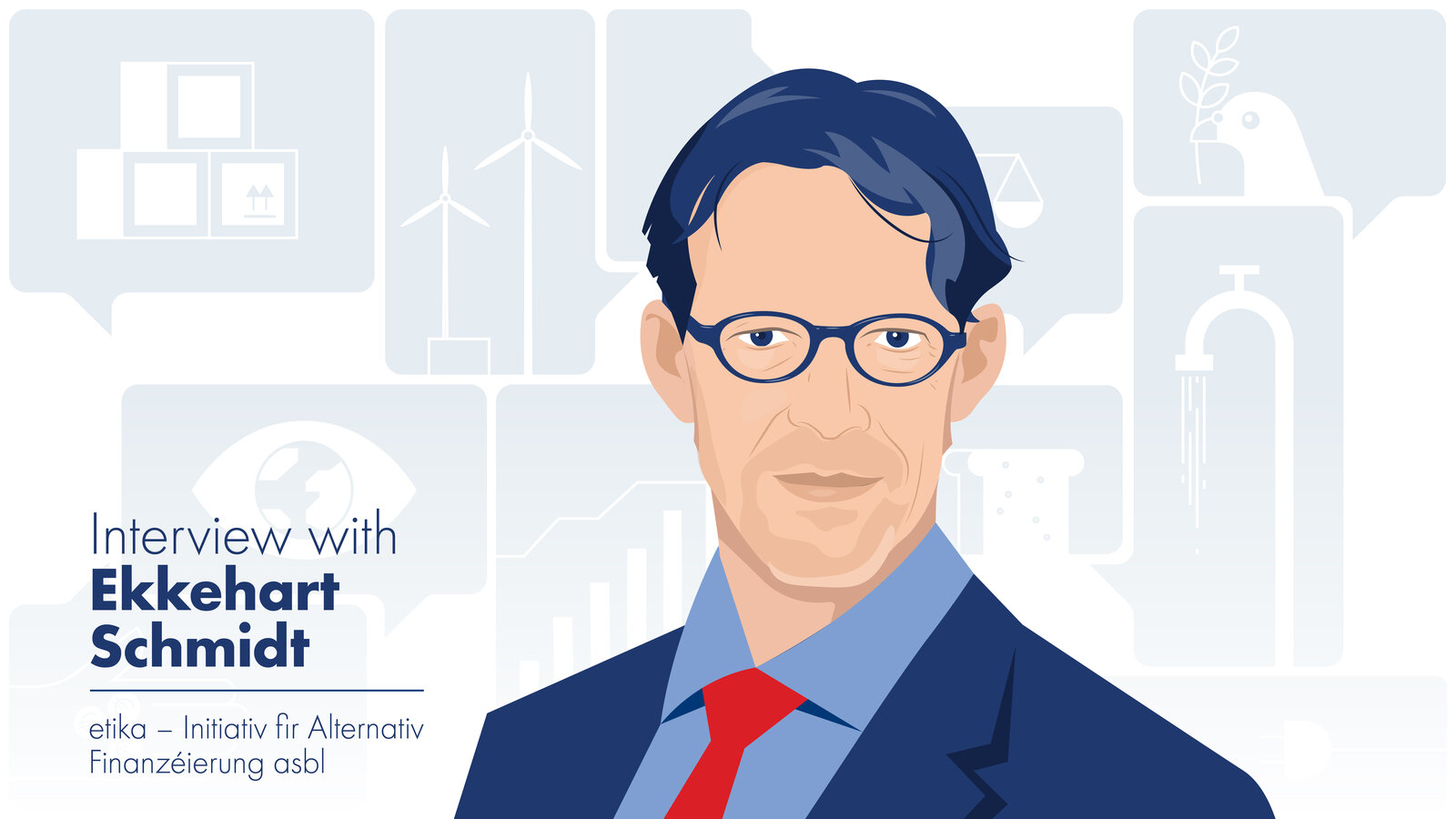Climate change risks and how to mitigate them
Climate change risks are a growing concern for companies, including financial institutions, as they can be caused by physical effects, weather changes, or…

In this case, “ethical” should mean investing socially and environmentally responsibly, i.e. making investment decisions that are not purely yield-oriented but value-oriented. The minimum is certain exclusion criteria. Nowadays, they are even being applied by many conventional banks. For example, they are no longer investing in the defence industry – but they are still investing in fossil fuels. Green and social (social responsible) banks, on the other hand, invest exclusively in sustainable projects or products (positive selection) and offer transparency to their customers who are concerned about values such as justice or goals, e.g. combating the climate crisis.
In the business model of socially responsible banks, more than two-thirds of the money entrusted to them in various forms by customers is passed on as loans to the real economy in accordance with ethical and environmental criteria. The remainder flows into equity investment due to liquidity requirements. This is also made possible by the fact that their customers value “impact” over returns.
The business model of conventional banks is very different: The proportion of loans is significantly lower for them. Much of their activity is speculative. Today, they are primarily involved in the financial markets by buying and selling financial products such as investment fund units, derivatives, shares and bonds – if possible, at a profit. In contrast, they have generally withdrawn from the real economy. Yield expectations are decisive, while public welfare interests are of secondary importance.
Simply by focusing more on the already established practices of socially responsible banks. First and foremost: Avoid investments that have negative effects. This is the case with the Paris climate agreement, which in 2015 set the goal of redirecting global “financial flows” to low-carbon industries.
A wide range of civil society and political actors have since called for this to be put into practice. The Green Deal is now the political commitment of the 27 EU Member States, which entered into force in 2021, with the aim of reducing net greenhouse gas emissions to zero by 2050 and becoming the first continent to become climate-neutral.
To this end, it includes measures ranging from energy supply and transport to financial market regulation (“sustainable finance”) in order to reduce the EU’s CO2 emissions by at least 55% by 2030 compared to 1990 levels.
The Taxonomy Regulation created the world’s first “green list” for sustainable economic activities in 2020 – a classification system that investors can use to invest in sustainable projects.
The financial sector has responded to growing pressure for decarbonization by marketing supposedly new and sustainable financial products. There has been a huge increase in so-called ESG investments: financial products that respect environmental and social criteria as well as corporate governance. However, “respect” does not mean excluding harmful investments.
The EU is no longer willing to accept the strong greenwashing tendencies that this entails, because they jeopardise the objectives of the Green Deal. Generally valid labels are to replace vague sustainability claims. The aim is to counteract the trend that many funds are now “ESG-screened” but little has changed in their investment policy.
In the Luxembourg financial centre, it is proudly proclaimed that 73% of all investment funds domiciled here are now “sustainable”. This is in line with Luxembourg’s global responsibility. This gives the impression that the much-vaunted redirection of financial flows is well underway. But where exactly are these supposedly green funds investing? Primarily on the global equity markets. This has little impact on the real economy.
It is a misunderstanding to believe that when you buy a share in a company on the stock exchange, there is also a direct transfer of money to that company. The share is only acquired from another market player. The company itself does not benefit from this transaction.
This is only different in the case of an IPO. Then a direct capital transfer takes place. The subsequent transactions only affect the company indirectly. If you really want to exert influence with your money, you must look for investment opportunities that have a real economic effect. This is accomplished predominantly via the primary market or through loans that benefit sustainable firms and projects.
etika, together with Spuerkeess, is happy to offer such a product with the Alternative Savings Account.
Such investments are usually loans or the acquisition of equity capital from firms with a specific objective: the production of goods, the provision of services or the construction of housing. Investment loans are often used to construct buildings or buy machinery. So, for example, when a farmer builds a barn or warehouse, construction is carried out by craftsmen and with material from the region. The local economy benefits, and with it – through tax revenues – the local community or the state.
If the recipient of the loan is pursuing a social or ecological goal, as it is the case with all projects financed by Spuerkeess and etika, this has a positive effect on the common good here in the country. Loans to organic farmers help preserve biodiversity while loans to social institutions help reduce disadvantages or bring people back to work. Everyone benefits from this, even if they don’t feel it directly.
About the blog:
There is an urgent need for rapid transition to global sustainability. Business and industry have enormous social and environmental impacts. "Why does it matter?" is a bi-monthly blog that aims to elucidate this important topic through the eyes of our experts.
Don't miss out our experts' practical tips for your daily life and be part of the positive change.